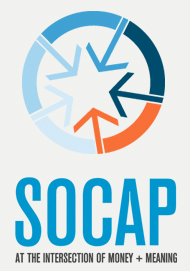TRACK INTRODUCTION
Building social capital infrastructure to support locally implemented urban and rural solutions on a global scale. Let’s bridge the divide between the developing and developed world, and learn from one another, from the U.S. to Africa to the Middle East.
WATCH TRACK VIDEO
INTRODUCING TRACK CURATOR: FIONA HOVENDEN
 I’m Fiona Hovenden, curator of the track Polycentric Solutions: local in the world. I’m an ethnographer by trade and inclination. I have spent the last twenty years researching and documenting how individuals, groups and organizations change to navigate crisis and embrace possibility. With Erika Gregory I co-founded the social innovation consultancy Collective Invention, Inc. We use holistic diagnostics, theater, futures thinking, and research-based persona and scenario development to create immersive experiences that enable our clients to explore future options, and develop a forward-acting resilience.
I’m Fiona Hovenden, curator of the track Polycentric Solutions: local in the world. I’m an ethnographer by trade and inclination. I have spent the last twenty years researching and documenting how individuals, groups and organizations change to navigate crisis and embrace possibility. With Erika Gregory I co-founded the social innovation consultancy Collective Invention, Inc. We use holistic diagnostics, theater, futures thinking, and research-based persona and scenario development to create immersive experiences that enable our clients to explore future options, and develop a forward-acting resilience.
TRACK SESSIONS
Polycentric solutions: The ‘What?’, the ‘How?’, and the ‘Why?’
How might locally focused, globally aware, and distributed action help us to create economic and environmental sustainability and equity? In the track as a whole we will be exploring different aspects of local systems and ways in which people are creating new value, strongly tied to locally relevant outcomes. In this introductory session, we will discuss polycentrism as an approach of distributed power and mutual responsibilities. We will look at polycentrism as a structure, but also as a set of capacities – if we believe complex problems are best solved by multiple actors and agencies, sharing power and responsibility, how do we need to plan, act and assess differently?
>>>Engage on SOCAP11 attendee network
Real Food: Access and Cooperation
With increasing economic and environmental insecurity, food access is becoming a critical issue. Food insecurity makes communities more vulnerable to other effects and traditionally disenfranchised communities are at risk. How do we think about urban agriculture and sustainable farming to ensure that good, fresh food is within the reach of all? A re-imagining of the food-shed, and local resources, creates value, builds skills and engagement, and is ultimately a foundation for resilience.
>>>Engage on SOCAP11 attendee network
Investing in Home: The Role of Housing and the Built Environment
More than 50% of the world’s population now lives in cities. Multiple actors are working together to generate polycentric and holistic solutions for urban environments. These range from mixed-income housing, multi-use developments, public, private and hybrid financing for social housing, and design for proximity. Capital and expertise are responding to local environments to create safe and sustainable communities, with lessons that can be applied across the globe.
>>>Engage on SOCAP11 attendee network
Slow Money: Capital, Currency and Entrepreneurs
In contrast to classic capitalism, with its singular focus upon the extraction of resources to create value, the principles of Slow Money argue for a regenerative system of capital flow. Value taken out is balanced by value put back in. Using the ideas of farming and Slow Food as metaphor and inspiration, this movement argues for percentages of re-investment into the local community - What would the world be like if we invested 50% of our assets within 50 miles of where we live? In order to make local communities viable and self-sustaining what kinds of entrepreneurship and business models are needed?
>>>Engage on SOCAP11 attendee network
Resilience: From Disaster Response to Economic Sustainability
Disaster response and post-conflict restoration are fast becoming areas of creative solutions to local, regional and national regeneration. This session explores a variety of current solutions, in different parts of the globe, from developing ways to involve local entrepreneurs in reconstruction, to creating business networks that mitigate the problems of political violence and civic unrest, to using the ideas of disaster preparedness to inform the development of economic sustainability.
>>>Engage on SOCAP11 attendee network
The Polycentric Region
In the 1990s, the shipbuilding industry in Sweden collapsed. For Malmö, and the Region, this was a tradgedy as the city not only lost a large number of jobs, but also its identity, and population dwindled. After some unsuccesful attempts to establish other heavy industries, a different strategy was implemented with a focus on knowledge, innovation and sustainability, built on cross-sector collaboration. Malmö is now a fast-growing city and has won acclaim for it`s environmental sustainability and several succesfull ventures within new media and information technology. But the social challenges have been more difficult to handle, and the top-down attempts that were made failed. Today there is a growing interest in social innovation and entrepreneurship, bringing local and regional government, business, civil society and academia together in several programs to meet the challenges with a more polycentric approach. One of the cornerstone partners is the National Center for Social Innovation and Entrepreneurship at Malmö University.
Eva Engquist, Pro Vice Chancellor at Malmö University will tell the story of why the Region wants to promote social innovation/entrepreneurs’ (the region’s vision), how a multilevel platform can be built in between the private/public sector and what role the university has in this. Philip Sandberg, Public relations officer at Centre for Public Entrepreneurship will describe why Region Skåne invests in the Centre for Public Entrepreneurship and what they can do to enhance the number of social entrepreneurs/entrepreneurial projects in the region.
>>>Engage on SOCAP11 attendee network
TRACK QUESTION
How might we re-imagine resources to create self-sustaining and thriving local communities?
